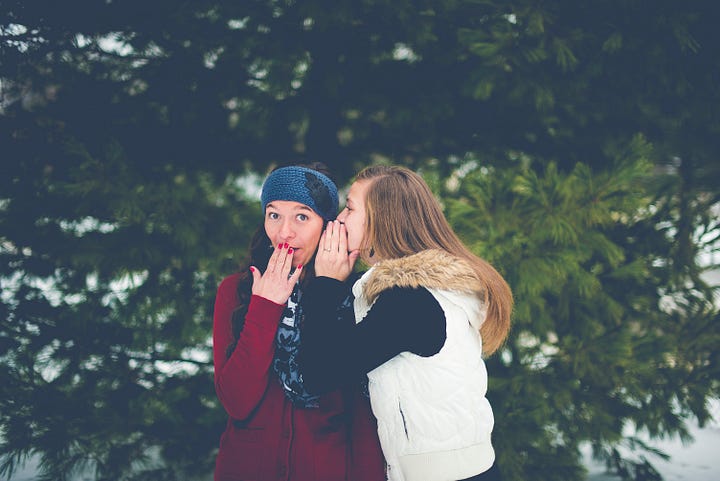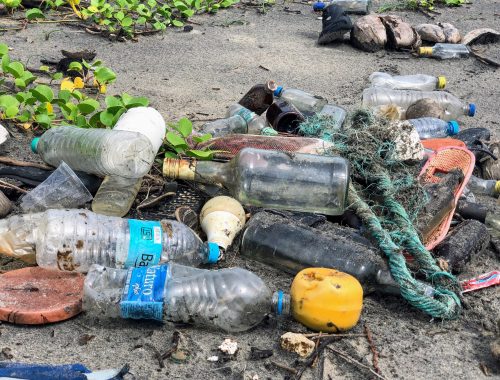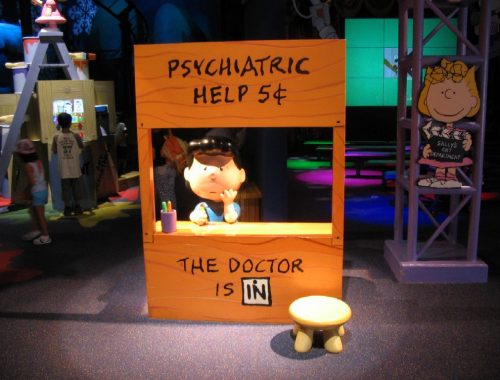
I Apologize & Hope You Forgive Me
While hiking a few days ago, I had a random memory. The random memory transitioned into some more random thoughts, which flowed into thoughts of Yom Kippur, the Jewish holiday beginning the next evening.
The theme: Forgiveness.
The random memory: When I was in my mid-20s, a friend and I hosted a party at her condo’s rooftop party room. My then-roommate was flirting with a guy. I decided to go home with him, and I did.
That was mean and not something a friend would do.
That memory reminded me of a similar situation a few years later. I briefly dated a guy that another friend and I met on the same day. The day we both met him, she told me that she thought he was “cute”. Months later, she shared with me that she’d liked him the day they met. I acknowledged that I remembered her saying he was cute, but didn’t know she was interested in him. Either I was oblivious, or I was lying. I don’t remember which. I should not have accepted a gesture from a man who a friend thought was cute. At least, not without clearing it with her first.
My current self knows that my actions were likely motivated by insecurity.
My mental chatter about these two events
Did I ever apologize to these friends? Should have I apologized? (Probably?) What would happen if I did apologize years later? What use would it be? They’ve probably forgotten. At least one is married and a mom, so it worked out for all of us.
Then I thought about the nature of apologies.
The nature of apologies
These thoughts are not unique. I’m not breaking new ground here. However, I believe that asking for forgiveness after time had passed would only serve to assuage my own feelings of wrongdoing.
Yom Kippur & forgiveness
Forgiveness is a significant component of Yom Kippur.
Here is what Chabad.org says about asking for forgiveness on Yom Kippur:
If we really want to come out of this holy day completely clean, we need to first approach any individual whom we may have wronged and beg their forgiveness. This applies whether the offense was physical, emotional, or financial (in which case, seeking forgiveness is in addition to making appropriate monetary restitution).
Just as the offending individual is enjoined to sincerely seek forgiveness, so, too, the victim is expected to wholeheartedly forgive — provided he is assured that the plea for forgiveness is indeed sincere.
Furthermore, regarding the first part, they say that you should be specific about what you’re apologizing for unless that would cause further embarrassment to the victim. Fair enough.
But then they say,
If the injured party refuses to grant forgiveness, try approaching him several times, each time in the company of a few friends (who can try to convince the victim of the sincerity of your intentions).
Ouch.

Ego or compassion?
One of the reasons that people apologize, confess and ask for forgiveness is related to their feelings of guilt and shame. A person’s ego prefers to pester with messages that they’re wrong, bad, and unworthy.
The ego is fear-based.
While confession could be good for the soul, it can result in a foul self-fulfilling prophecy. If your ego is saying hateful things to you, and — according to some theories — your subconscious always seeks to be right, then the person you’re apologizing might respond unkindly.
Really, you shouldn’t do anything you’ll need to apologize for, but we’re human, and we will mess up. In addition to that, people are sensitive. People have issues that get triggered. Chances are, every individual sometimes hurts, angers, or otherwise offends another person.
In some cases, apologizing and asking for forgiveness only reopens an emotional wound. That reopening could be good or bad. (I think that any time we’re triggered, it’s a chance to look inward and deal with our issues.)
Sometimes apologizing is the wrong kind of selfish & the loving thing to do is to say nothing. I don’t recommend dishonesty. Nonetheless, I do believe that there are times when it’s acceptable to either hold off on apology or wait until it’s forgotten and say nothing. It depends on the situation.

Who benefits?
While it’s often essential to apologize to others, it’s most important to forgive ourselves first and then decide why we want to apologize. We could ask ourselves where the need to apologize is coming from and why we desire forgiveness. Is it coming from love (compassion) or fear (ego)? It might be coming from both. Are we genuinely looking to make amends, or do we want to be liked? Again, maybe both. If we are apologizing with love and a desire to admit our mistakes, will that apology benefit its recipient?
I think that there are times to apologize directly, and times to transmit the energy of a loving apology out into the world. We can write a letter that we don’t send or imagine the conversation with pure intention. Instead of apologizing to a friend we’ve wronged, we can show them we care.
Apologies are words. Actions speak louder, they say.
As I walked through the forest, I found myself thinking about how to reconcile my own needs vs. the needs of someone else when it comes to my own wrongdoings.

How To Apologize And Take Responsibility When You Make A Mistake
The day after I had these thoughts on the hike, I opened a relevant newsletter from Gabrielle Bernstein. This note was a mea culpa regarding a recent incident when her actions — the result of tiredness and overwhelm — upset people. It was a lesson for her and for her readers. The newsletter linked to instructions about how to apologize and take responsibility.
Step 1: Own your part. — Bernstein explains, “gently and lovingly witness your own behavior.” -I think that this allows you to quiet the ego and approach the situation in a more loving way rather than a fearful one.
Step 2: Forgive yourself. (There are 4 steps for forgiving yourself.)
Step 3: Take care of your side of the street. — Apologize if you need to.
When we’re wrong, we can out it. We can take responsibility, apologize and choose to see the gift in a painful experience. We can choose love.
Often, the wrongdoing is against ourselves. We judge ourselves cruelly. We mistreat and disrespect ourselves. In those cases, the only person to forgive is ourselves.
Apologize to yourself.
Communicate loving thoughts and send the message of love to your physical body, your organs, your mind/ego, your cells. Forgive yourself for acting as your own enemy. Make peace with your external environment and your internal one.
Be your best self.
And that’s my Yom Kippur sermon. You can dub me Rabbi Andrea.
(Cross-posted from Medium.)

Environmentalism Is Sexy
You May Also Like

Do You Give Away Your Power?
October 1, 2019
Environmentalism Is Sexy
October 11, 2019
